Don't miss out on the best jobs!
Subscribe to HelpGoAbroad and weekly we will sent you an email with latest job posts. Provide your email address below
One of the most sustainable methods to travel and authentic ways to interact with the local culture, is by working while you travel abroad, but it can be difficult to locate an employer willing to hire you for only a few months while you are in the area. The key here is to find seasonal work, which only lasts for a few months, dependent on the weather, tourist season or other factors such as festivals and local traditions that bring in the business and thus require extra hands on deck! One of the most accessible fields to find seasonal work in jobs related to water, which could mean being in, above, riding, researching or under the water!
Depending on the job you pursue, there can be just a few qualifications to extensive requirements for certifying that you are able to perform the duties expected of you. Being able to swim is probably a good place to start but if you are interested in working with water, then chances are you have already tuned in to your inner aquatic self that thrives in the liquid heaven of oceans, lakes, and rivers. Here are the top five genres of water-related jobs that you can get involved with while you travel, whether you’re a backpacker, looking to gain experience for a full time career or just looking for a new and exciting opportunity away from an office!
Water sports Instructor
Teaching others all the different and entertaining ways to enjoy the water is one of the best jobs in the world, as you will not only be able to see the joy of someone else discovering the exhilaration of water sports but you’ll get to be out there playing with them! One of the most essential water sports instructor positions is as a lifeguard, which is one of the best ways to help people learn to love the water, while keeping them safe. Lifeguards are needed in establishments as local as public pools, to international five class resorts, to exotic beaches! Most lifeguarding positions will look for a CPR/First Aid certification as a requirement for future employees.
Positions as an instructor for kite boarding and windsurfing and sailing, are weather dependent on the ‘windy’ season, which varies depending on your location. In Australia, the windy season is generally form November to May, while other places such as Tarifa, Spain or Jericoacoara, Brazil are windy almost all year long! These days, most kite boarding schools are looking to have IKO certified instructors, which can range from assistant all the way up to a course leader.
Wakeboarding and water skiing instructors are usually found working at camps which run during the summer season, but if you head to a more tropical climate such as the Philippines, there are cable parks that don’t even require you to have a boat driver’s license to be able to work there.
Nailing a gig as a surfing instructor would also be a stellar way to teach youngsters (an adults too!) how to respect the power of the ocean, while having a great time riding waves! Stand Up Paddle Boarding is also making a major come back and not only could you get involved teaching basic flat water paddling or SUP wave riding techniques, but an up and coming industry is the concept of SUP Yoga, where individuals practice yoga positions on a SUP!
Tour Guide
The avenues that await you as a tour guide are almost infinite. You can work as a tour guide on a whale watching boat, a white river rafting guide or even a luxury sunset tour guide, the number of possibilities are truly limitless.
Tours related to wildlife such as whale or dolphin watching, or even swimming with whale sharks are dependent on the migratory season of the animals. In the Philippines, whale sharks migrate through the area between October and May while in Australia they make their seasonal appearance beginning in April until August. If you have a passion for marine wildlife, working as a wildlife tour guide could be the perfect opportunity for you to spread your love of animals and awareness of the ocean to others. Other seasonal whale tours include the summer whale migration in Alaska, which compliments beautifully with the winter migration patterns in Hawaii that runs December through April. Tours usually look to hire people with backgrounds in wildlife, academic or experience based, so that way they know you are invested in the content, they don’t have to train you as thoroughly and you exhibit dedication to the main attractions.
Another type of tour that you can lead are kayaking, white water rafting or canoe tours! If you prefer more of an ocean setting, you might find that kayas allow you the mobility to head over coral reefs or through caves, but if you are more of a river rat, there are some beautiful canoe tours through the southern region of the US or turn it up a notch and start getting your foot in the door working with a white water rafting crew in Bali! Many of these tours do not expect extensive experience in leading tours, they are often more interested in your personality, initiative and passion for the job, but since you are responsible for people’s lives, they will expect you to have or to plan on acquiring CPR/First Aid certifications.
Boat Crew
Boat crew positions are less about the interactions with people and more about making the boat run smoothly. There are several cruises, day tours and live aboard trips that will whisk you away on marvellous adventures and they all need a handy crew to make sure everything goes smoothly. From deck hands, to cooks to entertainers, it all depends on the size of the boat you are interested in working on, but there are so many different positions that you can find on a ship.
Along the Napali coast on the Hawaiian island of Kauai, several catamaran tours will take you on a scenic tour of the elusive filming location of Jurassic Park, and you could be one of the crew that helps prepare dinners for this spectacular sunset cruise, or perhaps the one responsible for steering the boat. Having some sort of background in boating or maritime knowledge is a safe place to start if you are interested in this industry.
If you are more interested with interacting with people, cruise ships offer you not only a way to be on the water, but also a way to travel to a number of different locations. Cruise ships need crew all the time, and if you have any hospitality experience, your skills are highly transferable between the land resorts and marine vessels.
Dive Instructor
Now that we’ve explored riding on the water, watching what’s in the water and touring around the water, it’s time to explore underneath the water. Becoming involved with the diving industry as a dive master, dive instructor or even manager of an entire diving center is not as difficult as some might think, especially if you are earning your dive certifications with a specific dive center and then pursue employment with them. This is not always the case, but due to the fact that you have established yourself as a motivated and hopefully competent diver, they will know your exact background and training, which is half of the battle when it comes to hiring someone to lead potentially life-endangering tours and courses.
PADI is the main certification organization that is widely recognized internationally, but there are other agencies that can still qualify you as a dive master or instructor. There are several courses before you qualify for these titles, but it is part of your experience working in the dive industry as you can explore different dive sites and centres all around the world accomplishing your courses.
The opportunity to be a dive guide is an amazing chance to learn about the marine ecosystems of our world, and to help others understand and gain respect for the wonders under the sea. This is a high-risk job as you are taking people underwater with a limited air supply and you must maintain a severe level of supervision and attentiveness so that no one endangers themselves. Dive seasons are dependent on weather and holidays (when people are available to take vacations) though some dive sites are great all year long.
Follow the Seasons
With all seasonal jobs, you have the chance to work a solid gig for only a few months, which could work perfectly with your travel schedule and the fact that you can possibly work the same job in another country on the off-season of the place where you originally started in that industry! You cover all your bases by constantly having work, while traveling and doing something you love and sharing it with others. When it comes to applying for future employment, make sure to contact possible employers early enough to be considered as a candidate because they may have a reliable crew that returns each season. Don’t let this deter you from applying because the type of people who chase seasonal positions are just as nomadic and may have wandered off to another spot and the company is looking for someone just like you!
Sign in to publish a comment
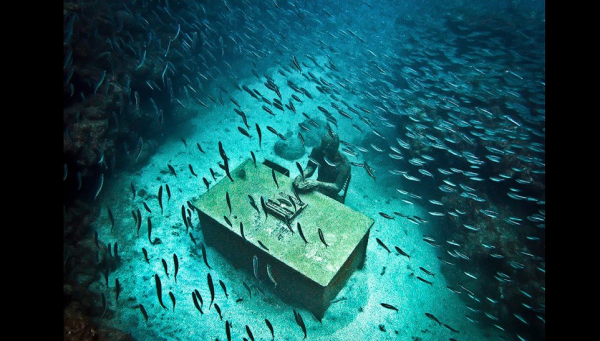
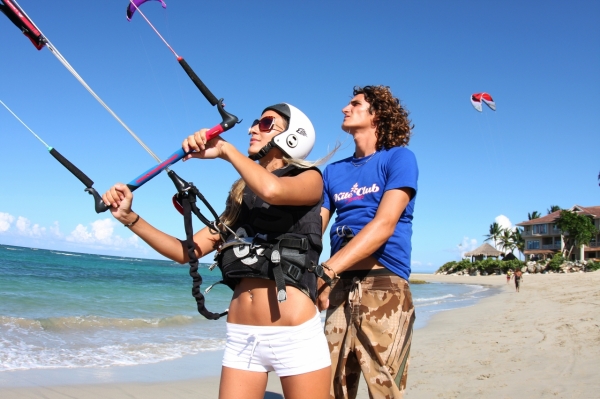
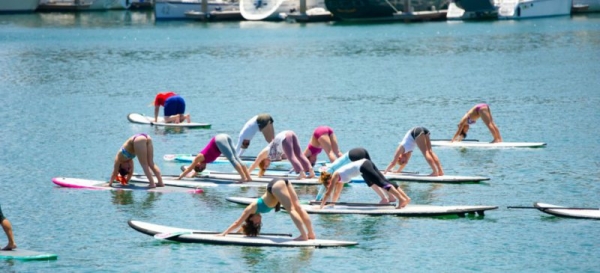
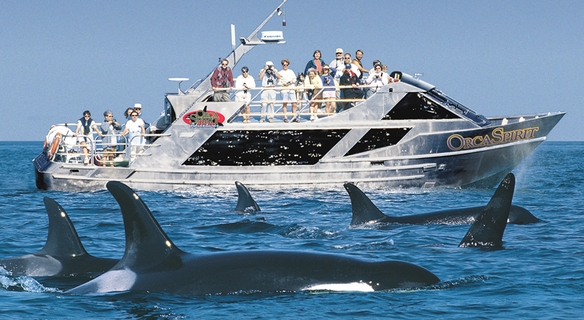
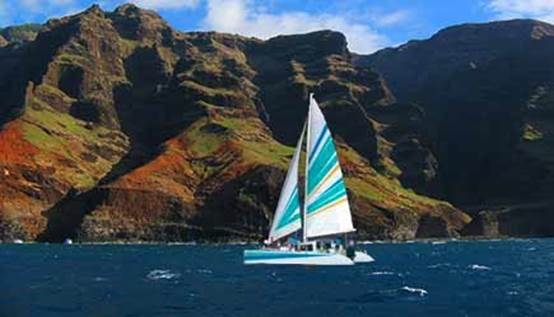
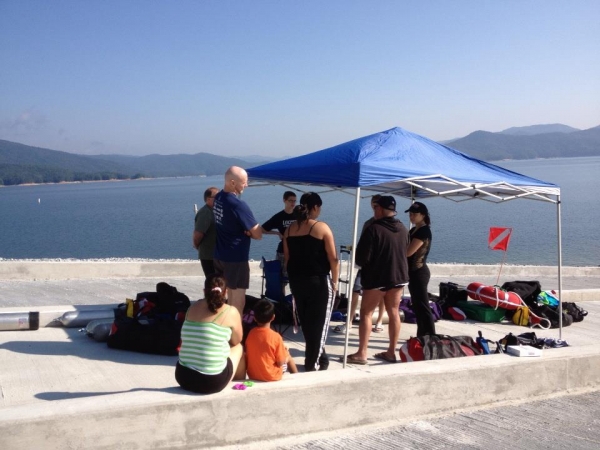
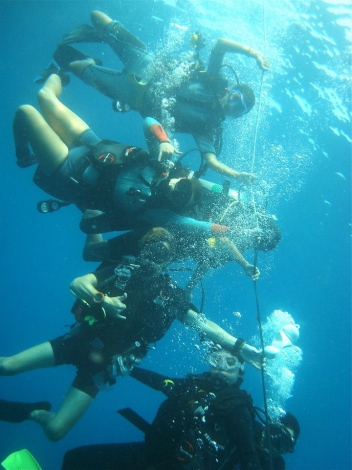
Be the first to comment on this post.